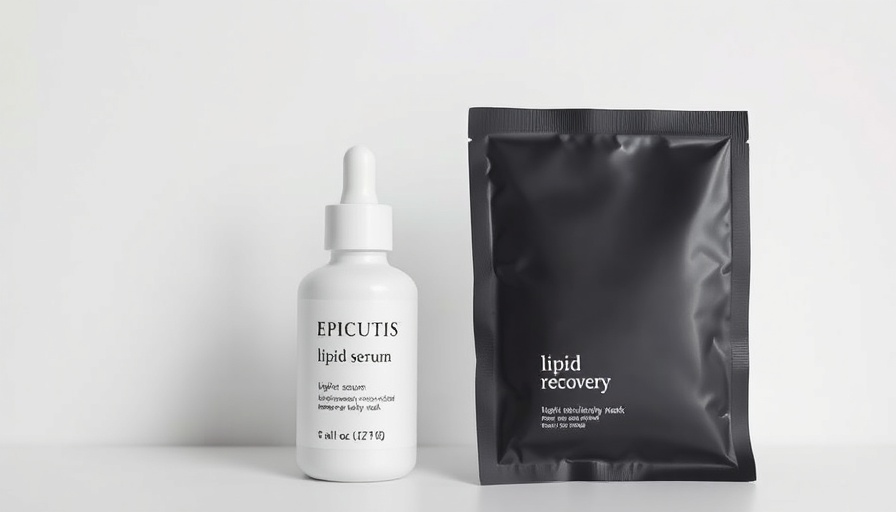
Revolutionizing Retinoid Use: The Impact of TSC on Skin Health
In an exciting development for skin health, a recent study has demonstrated that a molecule known as tetramethylhexadecenyl succinoyl cysteine (TSC) can significantly enhance the tolerability of tretinoin, a commonly prescribed retinoid. Retinoids like tretinoin are widely used for their ability to combat acne and signs of aging, but they also often come with a host of side effects, including erythema (redness) and dryness. The new findings could provide a pivotal solution for those who struggle with the adverse effects of these powerful medications.
Understanding the Study
The clinical study, published in the Journal of Cosmetic Dermatology, involved 60 participants with Fitzpatrick skin types I through IV. Over a period of four weeks, the patients were divided into two groups: one received a combination of 0.5% TSC and 0.2% tretinoin, while the other group received tretinoin alone. Results showed that those using TSC alongside tretinoin experienced a remarkable 68% reduction in erythema and a 47% improvement in dryness. Participants also noted a marked improvement in their overall tolerance to the treatment, reporting less peeling and irritation.
A Broader Approach to Skin Management
The positive outcomes from this study highlight a broader trend in dermatology that emphasizes personalized skincare regimens. Patients often hesitate to use tretinoin due to the unwanted side effects, creating a gap in treatment adherence. By integrating TSC, dermatologists may be able to offer patients a more palatable option, encouraging them to stay on their retinoid regimen for longer periods, thus maximizing the drug's benefits.
What Makes TSC Unique?
TSC's effectiveness stems from its unique formulation that combines anti-inflammatory properties with the ability to strengthen the skin barrier. The extensive research into its properties also indicates that it could potentially address other skin concerns, such as aging and acne management. This dual action makes TSC not just an adjunct but possibly a game-changer in how retinoids are used clinically.
The Implications for Cosmetic Dermatology
As the beauty industry continues to expand its focus on skin health, integrating innovative molecules like TSC aligns perfectly with consumer demand for effective yet gentle solutions. With the global market for tretinoin projected to exceed $10 billion by 2030, the introduction of TSC offers dermatologists a compelling way to increase patient adherence and satisfaction.
Future Considerations and Research Directions
While the initial results are promising, the authors of the study have highlighted the need for further exploration. They propose a larger, controlled study to explore the dose-dependent effects of TSC more thoroughly. This ongoing investigation could solidify TSC's role in dermatologic protocols, potentially leading to its widespread adoption in clinical practices.
Real-World Impact: Stories of Change
Many patients who have endured the side effects of tretinoin are hopeful that TSC will change their treatment landscape. With less irritation and improved skin health, there’s growing excitement about what these findings could mean for everyday users of retinoids. Personal stories about significant improvements in daily comfort and confidence could arm dermatologists with compelling tools for patient education and motivation, bridging the gap between treatment and actual results.
Conclusion: A New Era for Retinoid Users
The emergence of TSC as a beneficial addition to tretinoin therapy is a testament to how research continues to evolve in the realm of skincare. For many, this marks the dawn of a new era where the benefits of effective treatment no longer come with the burden of intolerable side effects. As studies progress and our understanding deepens, TSC has the potential to significantly reshape the conversation around retinoid therapy, allowing for healthier and more vibrant skin without the associated discomfort.
 Add Row
Add Row  Add
Add 






Write A Comment